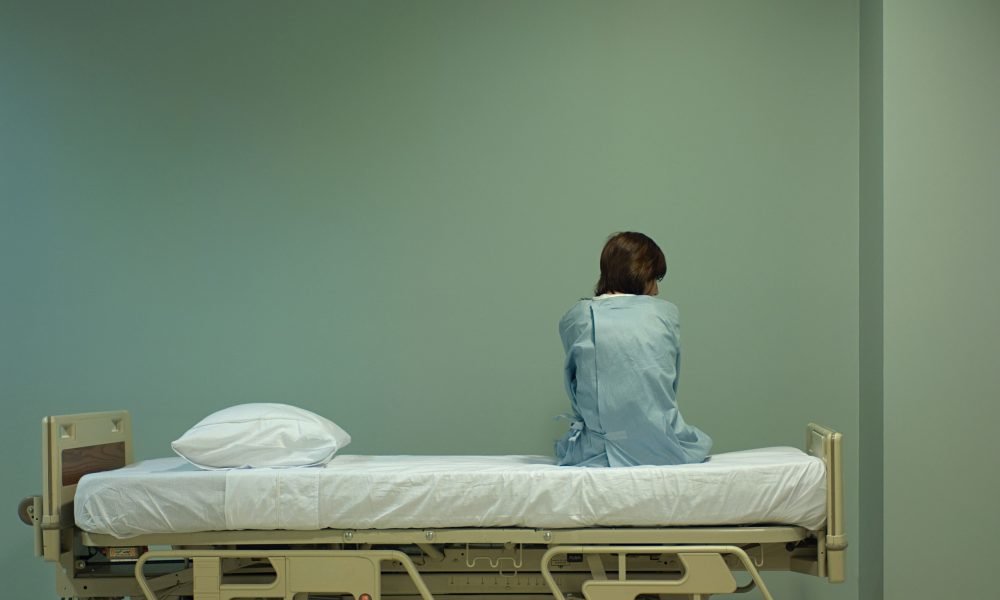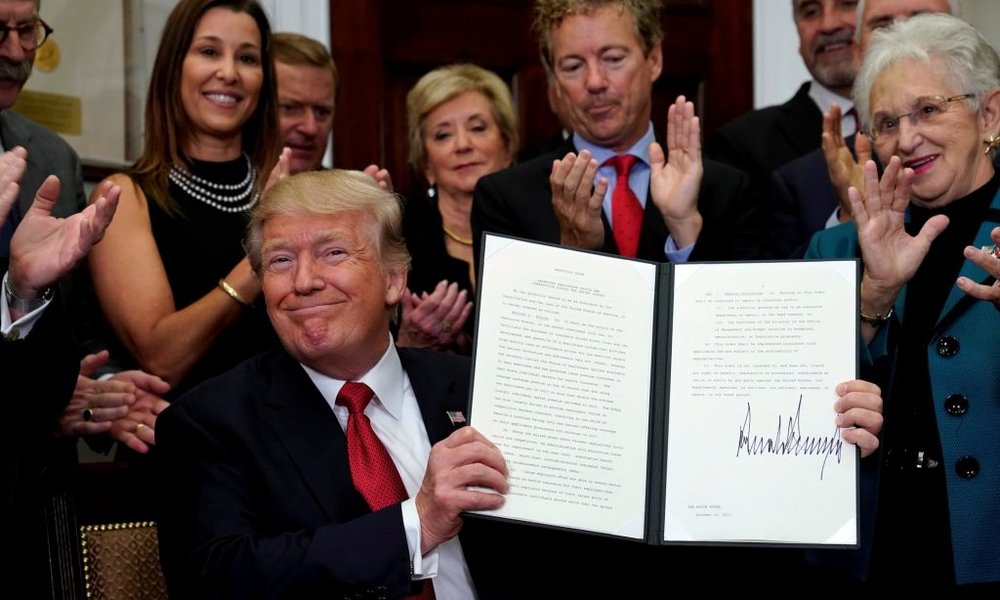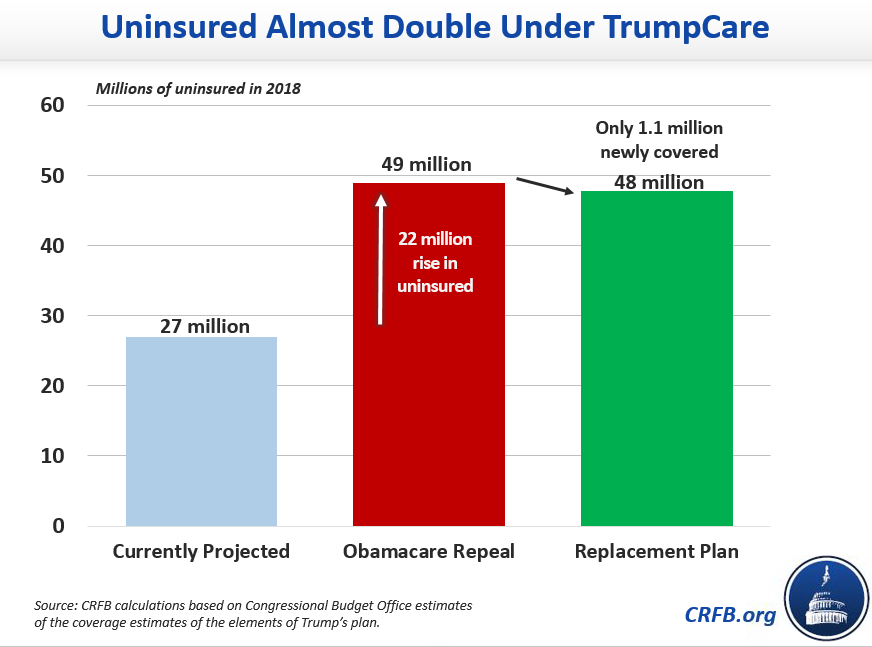
Study Reveals The Decline In People Who Have Health Insurance In The US

The benefits of being insured health-wise seem to be vastly undermined as more and more people are making the decision not to have health insurance. If the government does not do something about this, it might prove to be drastic in the long run.
As increasing premiums and political chaos over Obamacare undermine coverage gains that drove the nation’s uninsured rate to a remarkable low, the headcount of US adults that do not have health insurance has reportedly risen by nearly 3.5 million this year.
That discovery was derived from the most recent installment of a major research, released on the 20th of this month. The Gallup-Sharecare Well-Being Index (the group that carried out the research) questioned a random sample of 500 people daily on whether they have health insurance or not.
The result of the survey revealed that the rate of adults who are uninsured was 12.3% during the period from 1 July to 30 September, an upsurge of 1.4 percentage points since the end of last year (2016). This rise in the number of people without health insurance is more alarming because it comes at a time of economic advancement and low unemployment rate.

The annual sign-up period for subsidized private insurance plans under the Affordable Care Act starts 1 November, although this may still not make much of a difference.
Donald Trump has halted federal payments that payback insurers for lower co-pays and deductibles that the Obama-era law necessitates them to provide to individuals with modest sources of incomes. His (Donald Trump) administration reduced the portion of the budget set aside for advertisement for 2018 sign-ups, slashed the length of open enrollment in half, and sharply decreased the number of federal grants to groups that help consumers through the process.

Trump’s new administration rules greatly affect healthcare
The Gallup-Sharecare analysis noted that unless Trump and his Congress take necessary steps to make the insurance markets stable, “The number of uninsured Americans likely will continue to rise.”
A bipartisan bill to annul the cancellation of insurer payments has met opposition from conservatives. Trump has been unclear whether he backs the bill or not as he keeps sending mixed signals.
While “Obamacare” stays politically divisive, the expansion of its coverage assisted about 20 million people in getting health insurance thus bringing the rate of uninsured individuals to a historic low. This, however, is a thing of the past as continued progress seems unlikely now.
Budgeted premiums for plans sold on the health law’s marketplaces next year are likely to significantly increase in various communities, while insurer participation is severely down, with about half of US counties possessing just only one carrier.
Though consumers who are qualified for ACA subsidies are safeguarded from the increase in prices, many who purchase individual plans get little or no assistance from the government financially. Over 17 million people reportedly buy their policies.
Independent experts who went through the findings of Gallup-Sharecare reported that they seem to confirm other accessible evidence.
A senior research analyst with the Urban Institute health policy center, Matthew Buettgens, said “The results make sense, and they track with the results of other rapid surveys,” he continued “No one is expecting this open-enrollment period to increase enrollment.”
Gail Wilensky (GOP health economist) said the general direction of the results gotten by the Gallup-Sharecare seems rational, but she’ll anticipate confirmation from government surveys that take longer to produce results as they tend to dig deeper.

Wilensky spoke out saying, “The only thing most Republicans in Congress seem to agree on is that they don’t like the ACA,” continuing, she also said “Hard to build an alternative legislative package without a sounder basis for policy and with the very narrow majority in the Senate.”
Excluding seniors covered by Medicare, the Gallup-Sharecare research discovered that the rate of people without health insurance augmented among all the main demographic groups.
The loss of coverage focused mainly on middle-aged adults, with the rate of uninsured individuals increasing by 1.8 percentage points among those aged 35-64 since the end of last year (2016). Families making less than $36,000 on a yearly basis saw their rate of insurance increase by 1.7 percentage points since the end of last year
Among Hispanics, the rate was said to go up by 1.6 percentage points while the rate of uninsured blacks increased by 1.5 percentage points since the end of last year.
More in Motivation
-
`
Is Swimming in Cold Water Good for You?
Swimming is a beloved activity that provides numerous physical and mental health benefits. Swimming can be a fantastic workout, whether you’re...
November 15, 2023 -
`
Unlocking the True Benefits of Detox Water
Detox water has taken the health and wellness world by storm, promising a wide range of benefits that go beyond ordinary...
November 7, 2023 -
`
How Tom Brady Shed 10 lbs After Retirement
One of the NFL’s most celebrated athletes, Tom Brady, has always been a topic of discussion. Brady never fails to surprise,...
November 1, 2023 -
`
AI’s Hidden Toll on Our Brains
Artificial Intelligence (AI) has permeated almost every facet of our lives, from virtual assistants and recommendation algorithms to autonomous vehicles and...
October 24, 2023 -
`
What to Drink During a Workout
When it comes to getting the most out of your workout, proper hydration is key. What you drink during exercise can...
October 17, 2023 -
`
Wearable Technology Applications in Healthcare
The world of healthcare is evolving at an unprecedented pace, and wearable technology is one of the driving forces behind this...
October 10, 2023 -
`
Initiating and Integrating Exercise in Daily Life
Incorporating exercise into our daily lives is essential for maintaining optimal health and well-being. However, initiating a fitness routine and seamlessly...
October 10, 2023 -
`
Jason Momoa’s Workout Routine for Iconic Aquaman Look
We all remember the moment: The big screen lights up, waves crash, and out emerges Jason Momoa as Aquaman, with his...
October 8, 2023 -
`
Crying: The Benefits on Mental Health
In a world that often champions stoicism and emotional restraint, shedding tears is sometimes dismissed as a sign of vulnerability. However,...
September 26, 2023















You must be logged in to post a comment Login